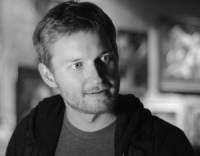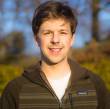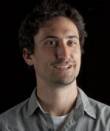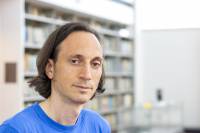
WAW 2015 - School
WAW 2015 - School
Schedule
Monday, December 7
| 08:30 am - 08:55 am | Coffee & Registration |
| 08:55 am - 09:00 am | School Opening |
| 09:00 am - 12:30 am | Random Geometric Graphs. Tobias Müller. |
| 12:30 pm - 02:00 pm | Lunch |
| 02:00 pm - 05:30 pm | Statistical and Causal Inference in Social Networks. (Link to code) Dean Eckles. |
| 05:30 pm - 07:00 pm | Welcoming Reception |
Tuesday, December 8
| 08:30 am - 09:00 am | Coffee |
| 09:00 am - 12:30 am | Local diffusion algorithms for fast, personalized graph applications. (Link to code) David F. Gleich and Kyle Kloster. |
| 12:30 pm - 02:00 pm | Lunch |
| 02:00 pm - 05:30 pm | Feedback session. Tobias Müller; Dean Eckles; David F. Gleich and Kyle Kloster. |
Speakers
Speaker: Dean Eckles (Sloan School of Management, MIT)
Title: Causality, randomized experiments, and statistical inference in social networks.
Abstract: Many social scientific and applied questions about networks are causal questions. This course will present some of these key questions and use this to guide teaching methods for creating (through experimentation) and analyzing network data. We will cover the basics of causal inference and how this can be especially difficult in networks – with a focus on trying to estimate how individuals in a network are affecting each other (i.e. peer effects). More advanced techniques covered include: graph partitioning and community detection for experimental design, using instrumental variables to estimate peer effects, matching methods using local network structure, and statistical inference with bootstrap and sandwich methods. Many of these ideas will be illustrated with recent experiments in online social networks.
 Speaker Bio: Dean Eckles is an assistant professor at MIT in the Sloan School of Management. He was previously a member of the Core Data Science team at Facebook. He is a social scientist and statistician studying how interactive technologies affect human behavior by mediating, amplifying, and directing social influence — and the statistical methods to study these processes. His current work uses large field experiments and observational studies. His research appears in peer reviewed proceedings and journals in computer science, marketing, and statistics. Dean holds degrees from Stanford University in philosophy (BA), cognitive science (BS, MS), and statistics (MS), and communication (PhD).
Speaker Bio: Dean Eckles is an assistant professor at MIT in the Sloan School of Management. He was previously a member of the Core Data Science team at Facebook. He is a social scientist and statistician studying how interactive technologies affect human behavior by mediating, amplifying, and directing social influence — and the statistical methods to study these processes. His current work uses large field experiments and observational studies. His research appears in peer reviewed proceedings and journals in computer science, marketing, and statistics. Dean holds degrees from Stanford University in philosophy (BA), cognitive science (BS, MS), and statistics (MS), and communication (PhD).
Speakers: David F. Gleich and Kyle Kloster (Purdue University)
Title: Local diffusion algorithms for fast, personalized graph applications.
Abstract: Graph diffusions like PageRank are increasingly used for fast, personalized graph computations. In particular, local graph diffusions have recently been designed for data mining applications like community detection, node centrality, link prediction, semi-supervised learning, graph kernels, and more. A growing literature in conferences like KDD, ICML, WWW, and WAW explores uses, properties, and efficient means of computing these diffusions. Moreover, data scientists at well- known companies are studying these tools for tasks like product categorization, targeted advertising, and clustering. Our course covers up to the state of the art in fast methods for local graph diffusions. This includes a discussion of random walks and graph structures to explain why diffusions are being used, and an introduction to local algorithms and sparse coordinate-relaxation-based linear solvers to derive convergence properties and implementation details. We will present application demos, and enough background to understand the algorithms and directions for future work.
Speaker Bio:
 David F. Gleich is an assistant professor in the Computer Science Department at Purdue University. His research is on high performance and large scale matrix computations for analyzing network data and other types of large-scale matrix data. He held the John von Neumann post-doctoral fellowship at Sandia National Laboratories in Livermore CA before joining Purdue in Fall 2011. Since then, he received an NSF CAREER Award in 2011 for work on localized methods for diffusions in large graphs.
David F. Gleich is an assistant professor in the Computer Science Department at Purdue University. His research is on high performance and large scale matrix computations for analyzing network data and other types of large-scale matrix data. He held the John von Neumann post-doctoral fellowship at Sandia National Laboratories in Livermore CA before joining Purdue in Fall 2011. Since then, he received an NSF CAREER Award in 2011 for work on localized methods for diffusions in large graphs.
 Kyle Kloster is a Mathematics PhD student at Purdue University, working with David F. Gleich on matrix computations and network algorithms. Kyle specializes in sparse algorithms for fast, local computations in matrix and graph problems. He has published work on fast graph diffusion and sparse matrix algorithms in the Journal of Internet Mathematics and the proceedings of SIGKDD and WAW.
Kyle Kloster is a Mathematics PhD student at Purdue University, working with David F. Gleich on matrix computations and network algorithms. Kyle specializes in sparse algorithms for fast, local computations in matrix and graph problems. He has published work on fast graph diffusion and sparse matrix algorithms in the Journal of Internet Mathematics and the proceedings of SIGKDD and WAW.
Speaker: Tobias Müller (Utrecht University)
Title: Random Geometric Graphs.
Abstract: In the course we will try to give an introduction to random geometric graphs. We will focus on the most studied model of random geometric graphs, often called to Boolean model or the Gilbert model. In this model, we take n points at random in the plane or higher dimensional space (generated i.i.d. according to some probability distribution) and we connect any pair of points at distance at most r. Here r = r(n) is a parameter than may and often does depend on n. We will cover some of the most important results and proof techniques for this model. The topics to be covered include the “emergence of a giant component”, connectivity and chromatic number.
 Speaker Bio: Tobias Müller got his PhD in 2007 from the University of Oxford, under the supervision of Prof. Colin McDiarmid. After temporary positions in Eindhoven, Tel Aviv and Amsterdam, he moved to his current position of assistant professor in Mathematics at Utrecht University in 2012. Dr. Müller's research interests lie in combinatorics and probability, including random graphs, percolation, discrete and stochastic geometry, random walks, random matrices, deterministic graphs in various flavours (extremal, coloured, fractional) and combinatorial games. An important role in his research, and in particular in his doctoral thesis project, NWO VENI project and NWO VIDI project, is played by random geometric graphs.
Speaker Bio: Tobias Müller got his PhD in 2007 from the University of Oxford, under the supervision of Prof. Colin McDiarmid. After temporary positions in Eindhoven, Tel Aviv and Amsterdam, he moved to his current position of assistant professor in Mathematics at Utrecht University in 2012. Dr. Müller's research interests lie in combinatorics and probability, including random graphs, percolation, discrete and stochastic geometry, random walks, random matrices, deterministic graphs in various flavours (extremal, coloured, fractional) and combinatorial games. An important role in his research, and in particular in his doctoral thesis project, NWO VENI project and NWO VIDI project, is played by random geometric graphs.
Important Dates
- Application deadline:
September 20, 2015Closed - Notification of acceptance: October 1, 2015
Organizers
- Yana Volkovich, Barcelona Media (School Chair)
- David F. Gleich, Purdue University
- Júlia Komjáthy, Eindhoven University of Technology
- Nelly Litvak, University of Twente